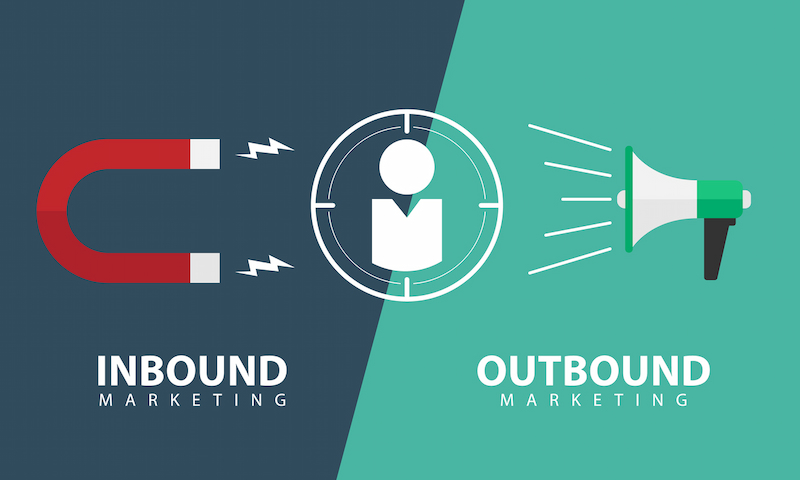The manufacturing industry tends to lean towards traditional marketing methods such as word of mouth, trade shows, or relying on well-established reputations developed and built up over many years. However, over the past decade, online marketing has evolved significantly. The methods of digital marketing like Search Engine Optimisation (SEO), pay-per-click (PPC), email marketing, social media and content marketing can be highly effective for manufacturing companies. It provides manufacturers with an excellent opportunity to broaden their client base.

Companies in the manufacturing industries can gain many benefits from investing in digital marketing. But for an industry that has been supported by old-school marketing methods for so long, you may ask, why do manufacturing businesses need digital marketing services? Buyer behaviour is constantly changing, and potential new customers are much more tech-savvy. While traditional marketing methods remain valuable, they are no longer the best way to reach new customers.
Why Do Manufacturers Need Digital Marketing?
There are two types of marketing, outbound and inbound. Traditional marketing is typically outbound and consists of one-way communication methods like print adverts, broadcasting adverts, unsolicited mail and email, billboards and cold-calling. Outbound marketing style is about casting your net as wide as possible and telling as many people as possible about your company, regardless of whether they’re interested in you.
Before the internet, clients relied on traditional advertising, sales representatives, and trade shows to get product information before deciding which company to purchase from. These days, traditional marketing methods have fallen out of favour, and all the information customers want to see can be found online. As a result, customers are no longer dependent on your sales team. They can get the answers they need almost instantaneously, using search engines like Google or Bing, without interacting with your business face-to-face.
Make sure you are visible online and provide potential customers with answers to questions about your products and services. The chances are one of your competitors will be, and you risk losing out on customers choosing to interact with manufacturers in this way.
At SQ Digital, we’ve partnered with manufacturers for over two decades and understand that jumping into digital marketing can be daunting. We’ve put this guide together to explain how you can use digital marketing to your advantage to attract the right people.
Establish Your Online Presence with a Good Website
Before developing a digital marketing strategy for your manufacturing business, you will need a website that stands out from the crowd and gives visitors to the site the information they’re searching for. For manufacturers, the website provides information to potential customers on what your company does, how it does it, the benefits of using you, and how to get in touch.
Business to Business (“B2B”) and Business to Consumer (“B2C”) companies usually have different goals and priorities for their websites. A B2B website often contains more technical information, which is presented in a straightforward, easy to digest manner and offers expert advice to the user. Ideally, it would be best to use a web design agency that understands B2B website design.
Your website should work hard to give visitors the best possible user experience when they visit. If the products you manufacture are particularly technical, you might consider including a form that allows users to input custom specifications and request a callback or a quote. You could also include videos demonstrating how you manufacture your products and pages detailing lead time expectancy and your manufacturing capabilities.
Make Your Website Easier to Find with SEO
Once you’ve got a well-functioning website, it’s time to make sure people searching for your products and services can find you online. Search engine optimisation, or SEO, is key to generating relevant, organic traffic to your website by targeting the words and phrases people use to search for your products.
When potential customers use Google, for example, and input search questions, words and terms, the search engine will look in various places on your website for those terms. The more relevant information related to the user’s search it can find on your website, the higher your pages will appear in the search results.
Unfortunately, it’s not quite as simplistic as that! There are many different approaches to SEO. For instance, technical SEO looks at the elements of your website that the user doesn’t necessarily see that help make the site accessible to search engines. On the other hand, SEO content writing focuses on tailoring your written content on each of your website’s pages to include the unique keywords related to your products that people are searching for. Optimising your website like this allows search engines to recognise what your pages are about, which helps them rank higher in search results. Our SEO quick wins guide explains some of the simplest ways to get started with optimising your website once you know what kind of terms you should be optimising it for.
But how do you determine which keywords your target audience is searching for? Driving lots of traffic to your site is all well and good. Still, you want to make sure that traffic is relevant to your business by targeting the right audiences with SEO, especially if you work in a highly competitive manufacturing sector with many companies vying for the same audience. If you don’t feel comfortable doing this yourself, it may be a good idea to get an SEO agency involved. An agency can help you perform thorough competitor analysis, and keyword research and develop an ongoing strategy to help your website climb up the rankings and stay there.
Support Your SEO with Content Marketing
Content marketing goes hand in hand with SEO, as search engines reward websites that publish fresh, regular, relevant content, usually blog posts. Blog articles can focus on longtail keywords or questions that people are searching for that are relevant to what your company does.
Writing articles that answer the questions or discuss topics your target audience is searching for can help position you as an expert in your field. The articles will also be able to direct people to your main website by internally linking to your other web pages, which is also beneficial for SEO.
Alongside these data-driven blogs, you can also publish pieces that explain how you manufacture products, share exciting developments within the company, and provide insights into the challenges the wider manufacturing industry faces. Content like this can help build trust in your brand. That said, content marketing is about more than just your blog. It also includes other digital marketing aspects, such as email campaigns, infographics, case studies and even videos. There’s a lot to think about, so if you need help, employ a content marketing agency to steer you in the right direction.
Get Your Products in Front of The Right People with PPC
Pay-per-click advertising, also known as PPC, is the paid alternative to organic SEO. Suppose your website appears in the organic search results, and a user clicks on your site. In that case, a user clicking on your website doesn’t cost you anything. Optimising your site did all the legwork to help your page climb the rankings.
On the other hand, PPC allows you to bid on keywords to place your website at the top of the search results page above the organic results. If a user clicks on your site from one of these promoted links, it will cost you the amount you bid. If you’re interested in learning more about how PPC works, have a read of our guide on Google Ads bidding strategies for businesses.
Bidding on competitive terms relating to your industry will increase the number of visitors to your site. Make sure they land on a page on your website that provides them with the information they are looking for. Overall, you’ll increase your website’s visibility and make it easy for people to convert into paying customers. As with all aspects of digital marketing, it’s essential to ensure you’re targeting the right people, as in these scenarios, every click costs you money. A PPC agency can help you create, monitor and adjust your pay-per-click campaigns and make sure you’re getting the most value out of every click.
Embrace Social Media
Social media marketing might not be the first thing that springs to mind for manufacturers. Still, with platforms like LinkedIn geared explicitly towards business use, the industry and B2B companies can thrive. LinkedIn is great for sharing opinion pieces on the manufacturing industry and its challenges. You can build connections with people and companies surrounding your sector and shout out about company news.
You can also use paid social media advertising to get your products and services to appear in the newsfeeds and timelines of your target audience. You can target people based on demographics such as geographical location, age, career and personal interests. We have a whole article on the benefits of social media for small businesses if you’d like to learn more.
Summary
A solid digital marketing strategy for any manufacturing business will include a combination of approaches. The digital marketing services you apply should all work towards the same goal – driving relevant traffic to your website. Website visitors should be able to learn more about what your company does and how you can help them – eventually converting them into new customers.
It can seem daunting and a lot to take in, so many manufacturers choose to bring a digital marketing agency on board to help guide the strategy. In the long run, this will save you time and money and provide a better return on your investment.
For over 20 years, SQ Digital has been helping manufacturing companies like Dean Group grow their online presence. Contact us today to learn more about how our team of experts can help your manufacturing business.



